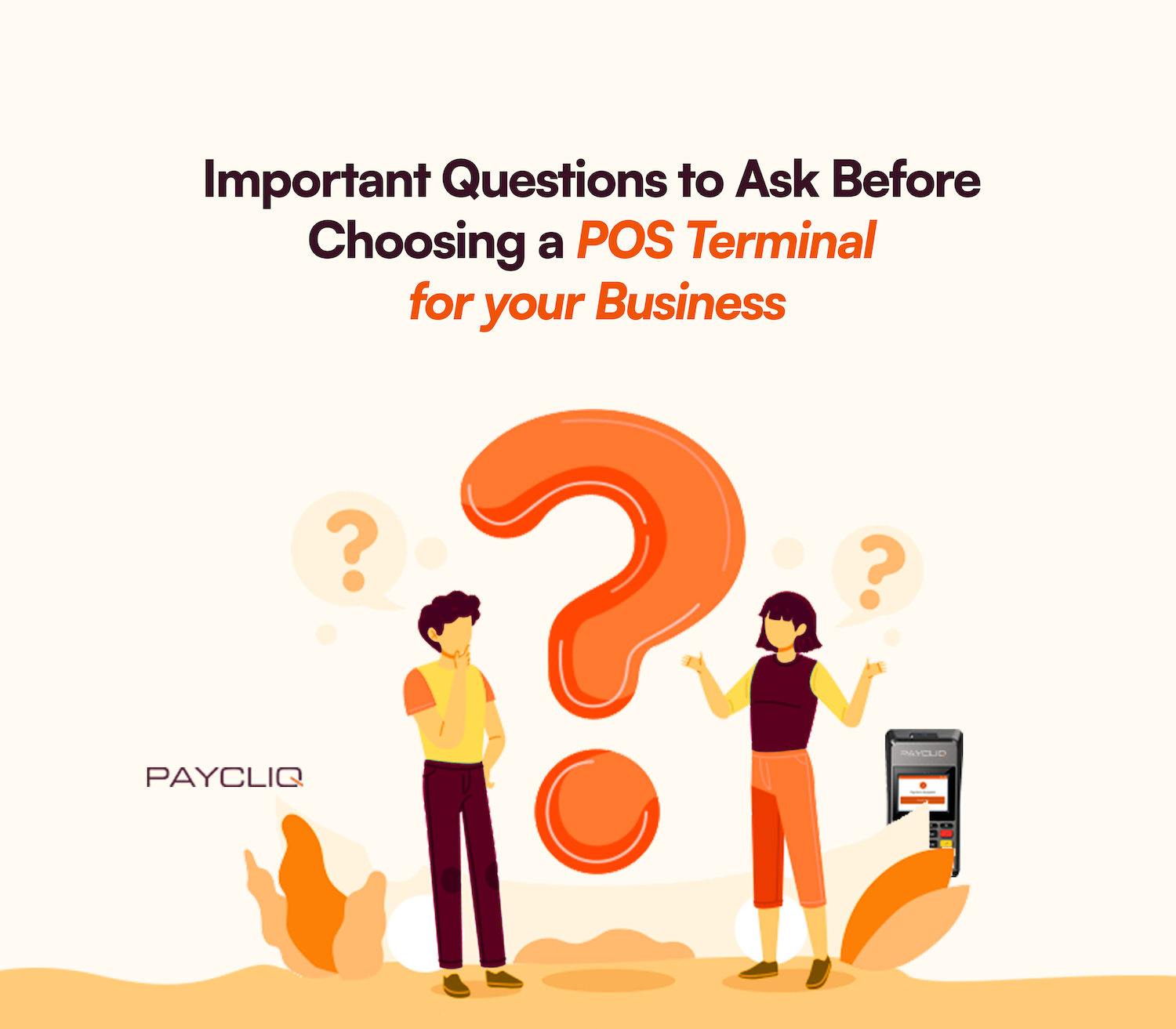Your business needs the right POS (Point-of-Sale) machine to streamline transactions and provide a seamless customer experience. Given the many options available, it can be overwhelming to determine the device that best suits your business needs. Asking the right questions before deciding will help ensure that the POS machine you choose enhances your operations and meets your business goals. Our post will reveal some key questions to help you make the best decision for your business.
1. What are my business needs?
Before looking at which POS machines to purchase, clearly define your business needs. Ask yourself these;
- Do I need a POS machine for my business?
- How many transactions do I process daily?
- Do I need a stationary machine or a mobile one?
- Will my business benefit from additional features like inventory management, sales reporting, or customer loyalty programmes?
Your specific business needs will help you select a machine that fits the scale and nature of your business. For instance, if you run a retail store, you might need a more comprehensive system like PayCliq with advanced features such as inventory management, bookkeeping, seamless invoicing, and customer relationship management tools, but if you have a food truck, you might consider a mobile device that accepts payments on the go.
2. Is the POS terminal easy to use?
A POS machine should be user-friendly because complicated systems can slow transactions, frustrate customers, and stretch the staff’s learning curve. Consider these factors regarding ease of use;
- Does the system have a simple interface?
- How quickly can new employees learn to use the machine?
- Are the buttons or touchscreen easy to navigate?
Choose a POS machine with a user-friendly interface that can save time and help maintain smooth operations.
3. What payment methods does it accept?
Your POS machine should accept different payment methods to give customers more flexibility and satisfaction. The key payment methods include;
- Debit cards
- Mobile payments
- Online payments
- Bank transfers
- NQR codes
Multiple payment channels can enhance the customer experience and increase sales.
4. How secure is the POS terminal?
Security should be prioritised when handling customer payments. A secure POS system prevents fraud, theft, and data breaches. To ensure safe transactions, consider the following:
- Does the machine comply with PCI-DSS (Payment Card Industry Data Security Standard)?
- Is it equipped with encryption and tokenisation features to protect sensitive card information?
- Are there additional security features like two-factor authentication or secure access controls?
Selecting a secure POS machine protects your business and builds trust with your customers.
5. Does the POS terminal offer additional features?
The major function of a POS machine is to process payments, but some modern machines like PayCliq come with additional features that can help streamline your business. Some of the most useful features to look out for include:
- Inventory management: You can track stock levels in real time and receive alerts when you need to reorder.
- Bookkeeping: Get insights into your daily, weekly, or monthly sales performance.
- Customer relationship management (CRM): This helps you to store customer data and track purchase history to create personalised experiences.
- Loyalty programmes: Reward returning customers and encourage repeat business.
- Invoicing Option: This helps generate accurate invoices without errors.
These additional features can add significant value to your POS machine and help you run your business more efficiently.
6. What are the costs involved?
When selecting a POS machine, understand the total costs involved. These costs include:
- Purchase or leasing costs: The initial cost of the device or monthly leasing fees.
- Transaction fees: What percentage does the provider take from each transaction?
- Maintenance and service fees: Are there additional regular maintenance or upgrade costs?
Choose a POS machine that is within your budget without neglecting essential features. Comparing the costs of different providers and services can help you find the best device for your business.
7. What support does the provider offer?
Access to reliable customer support is very important and can make a big difference because technical issues can arise anytime. When evaluating POS providers, ask:
- What type of customer support is offered (phone call, email, live chat)?
- Is support available 24/7 or only during certain hours?
- Does the provider provide on-site support if necessary?
A strong, active support service provider can minimise downtime and ensure your business runs smoothly.
What Is the success rate and transaction speed?
Slow transactions frustrate customers and lead to long queues, especially during peak hours. Hence, it is necessary to consider the transaction speed of the POS machine. Important questions to ask include;
- How quickly can it process different types of payments?
- Is the system reliable, or does it frequently go offline or experience errors?
- What is the success rate for completed transactions without glitches?
A machine that processes transactions quickly and accurately will improve the efficiency of your business and enhance customer satisfaction.
Our Take
Choosing the right POS machine for your business requires deep thinking on consideration of your specific needs, budget, and the features provided by different providers. Asking the important questions above can help you make an informed decision that will benefit your business and customers. Choose the right POS terminal, such as PayCliq, with advanced features to streamline your operations, increase sales, and improve customer experience.



What do you think?
It is nice to know your opinion. Leave a comment.